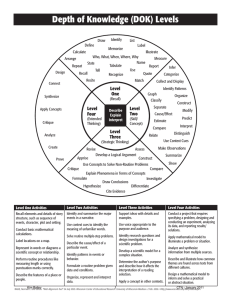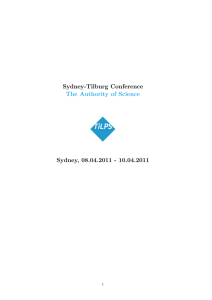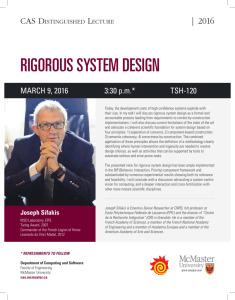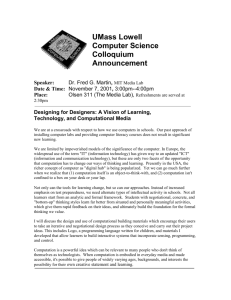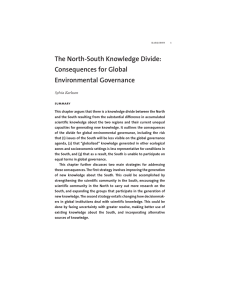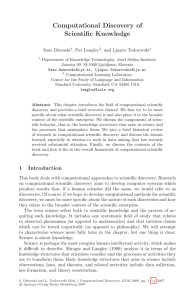Minor in Scientifi c requirements
advertisement
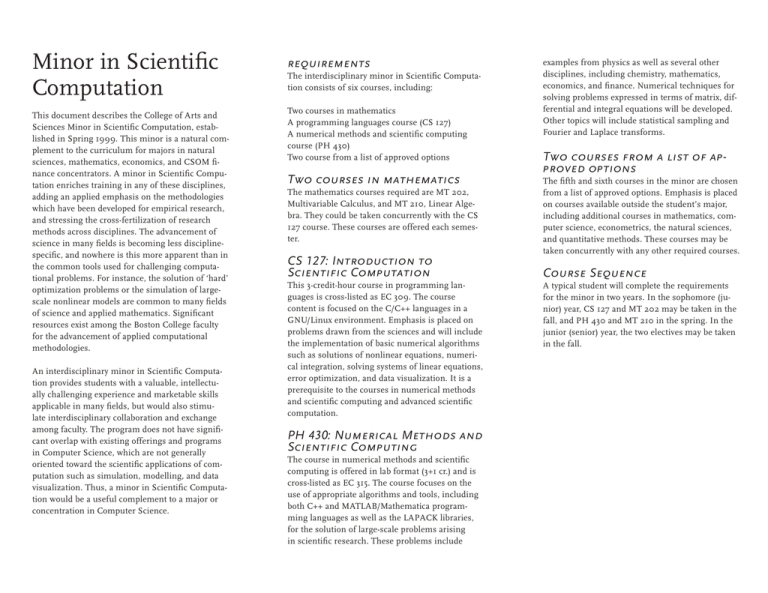
Minor in Scientific Computation This document describes the College of Arts and Sciences Minor in Scientific Computation, established in Spring 1999. This minor is a natural complement to the curriculum for majors in natural sciences, mathematics, economics, and CSOM finance concentrators. A minor in Scientific Computation enriches training in any of these disciplines, adding an applied emphasis on the methodologies which have been developed for empirical research, and stressing the cross-fertilization of research methods across disciplines. The advancement of science in many fields is becoming less disciplinespecific, and nowhere is this more apparent than in the common tools used for challenging computational problems. For instance, the solution of ‘hard’ optimization problems or the simulation of largescale nonlinear models are common to many fields of science and applied mathematics. Significant resources exist among the Boston College faculty for the advancement of applied computational methodologies. An interdisciplinary minor in Scientific Computation provides students with a valuable, intellectually challenging experience and marketable skills applicable in many fields, but would also stimulate interdisciplinary collaboration and exchange among faculty. The program does not have significant overlap with existing offerings and programs in Computer Science, which are not generally oriented toward the scientific applications of computation such as simulation, modelling, and data visualization. Thus, a minor in Scientific Computation would be a useful complement to a major or concentration in Computer Science. requirements The interdisciplinary minor in Scientific Computation consists of six courses, including: Two courses in mathematics A programming languages course (CS 127) A numerical methods and scientific computing course (PH 430) Two course from a list of approved options Two courses in mathematics The mathematics courses required are MT 202, Multivariable Calculus, and MT 210, Linear Algebra. They could be taken concurrently with the CS 127 course. These courses are offered each semester. CS 127: Introduction to Scientific Computation This 3-credit-hour course in programming languages is cross-listed as EC 309. The course content is focused on the C/C++ languages in a GNU/Linux environment. Emphasis is placed on problems drawn from the sciences and will include the implementation of basic numerical algorithms such as solutions of nonlinear equations, numerical integration, solving systems of linear equations, error optimization, and data visualization. It is a prerequisite to the courses in numerical methods and scientific computing and advanced scientific computation. PH 430: Numerical Methods and Scientific Computing The course in numerical methods and scientific computing is offered in lab format (3+1 cr.) and is cross-listed as EC 315. The course focuses on the use of appropriate algorithms and tools, including both C++ and MATLAB/Mathematica programming languages as well as the LAPACK libraries, for the solution of large-scale problems arising in scientific research. These problems include examples from physics as well as several other disciplines, including chemistry, mathematics, economics, and finance. Numerical techniques for solving problems expressed in terms of matrix, differential and integral equations will be developed. Other topics will include statistical sampling and Fourier and Laplace transforms. Two courses from a list of approved options The fifth and sixth courses in the minor are chosen from a list of approved options. Emphasis is placed on courses available outside the student’s major, including additional courses in mathematics, computer science, econometrics, the natural sciences, and quantitative methods. These courses may be taken concurrently with any other required courses. Course Sequence A typical student will complete the requirements for the minor in two years. In the sophomore (junior) year, CS 127 and MT 202 may be taken in the fall, and PH 430 and MT 210 in the spring. In the junior (senior) year, the two electives may be taken in the fall. Today’s technological society places great value on analytic computational and scientific skills, through which one can gain important insights from connections and analogies between very different fields. For instance, the vibrations of a molecule, the behavior of pulsating stars and the relation between inflation and unemployment are realizations of quite similar mathematical behavior. The study of such phenomena typically requires modeling based on computational techniques. The training needed to understand many interesting real-world problems typically goes beyond the material covered in a single academic discipline. The Minor in Scientific Computation is an interdisciplinary program drawing on the expertise of faculty from several departments to complement students’ training in the natural, mathematical and social sciences. for more information Co-directors of the minor Prof. Jan Engelbrecht Department of Physics Higgins Hall jan@bc.edu Minor in Prof. Christopher F Baum Department of Economics 21 Campanella Way baum@bc.edu Scientific Computation http://physics.bc.edu/MSC/ College of Arts and Sciences Dean Joseph F. Quinn College of Arts and Sciences

